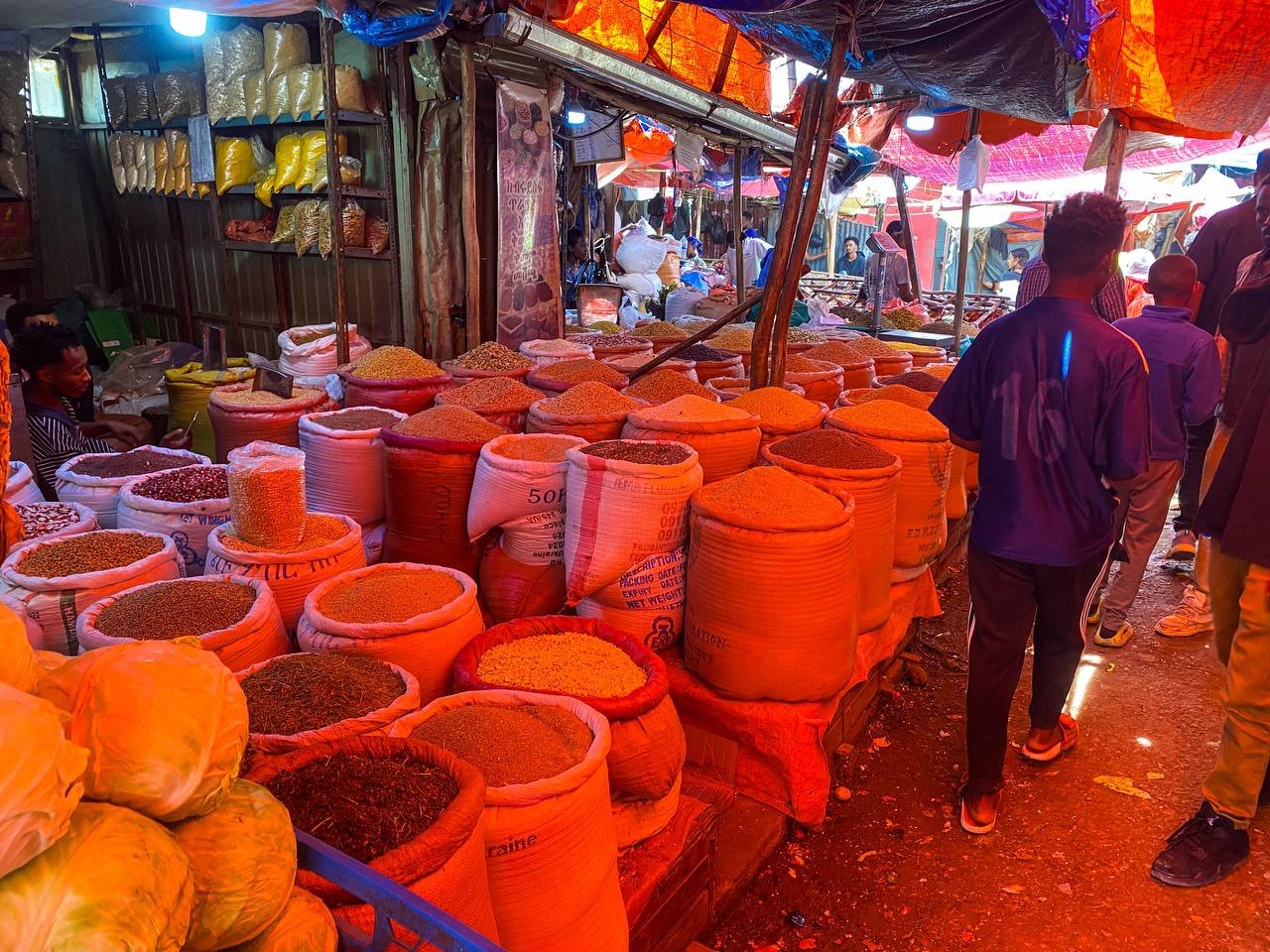
For the biggest holiday of the year in Ethiopia, no expense is being spared to celebrate Fasika (Easter) this Sunday—with delicious food, festive drinks, and a little something sweet for the children. Those who have been fasting for the past 55 days—avoiding dairy, meat, and all animal products—are the ones enjoying the day most, finally resuming the foods they’ve missed for nearly two months.
Usual complaints about rising prices for holiday ingredients are put aside for now. Today, for most people, celebrating and enjoying the moment is more important than anything else.
Back in 2002, a newly hired government employee could take a cab from Bole to Merkato, the city’s busiest market, for just 10 Birr ($1.18 USD). A quick stop for a latte and pastry would have cost around 15 Birr ($1.76 USD) total. At the market, prices were modest: a chicken for 35 Birr ($4 USD), a decent sheep for 200 Birr ($23.53 USD), and a whole cow for 1,000 Birr ($117 USD).
Fast forward 24 years, and the story is quite different. Dawit Birhanu, a graphic designer in Addis Ababa, now pays 70 Birr ($1.20 USD) for that same cab ride. A latte and pastry today cost anywhere between 100 and 180 Birr ($1.90–$3.30 USD). And shopping for meat is a financial decision: a chicken goes for 1,600 Birr ($12 USD), a sheep for 18,000 Birr ($135 USD), and a whole cow—typically shared among extended family and neighbors—sells for $150,000 Birr ($ 1,125 USD)
The sharp increase in the cost of transportation, coffee, and meat has left many locals stunned, as they watch their purchasing power dwindle by the day. Most people remain pessimistic about any near-term economic relief, basing their forecasts on years of experience and personal hardship.
But on Fasika weekend, none of that matters. On this holiday, money and prices take a back seat. Worries are put on hold. Real problems are set aside—and often not even mentioned. Reality, for most, won’t return until the celebration ends.
